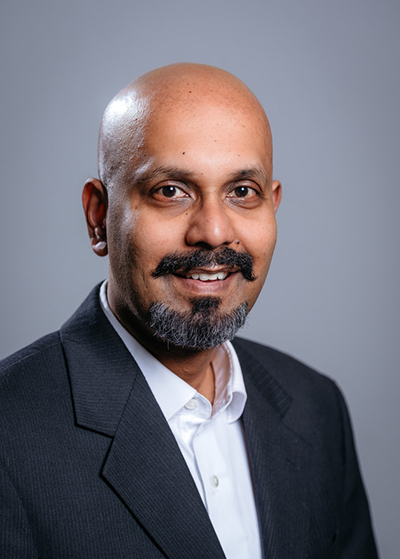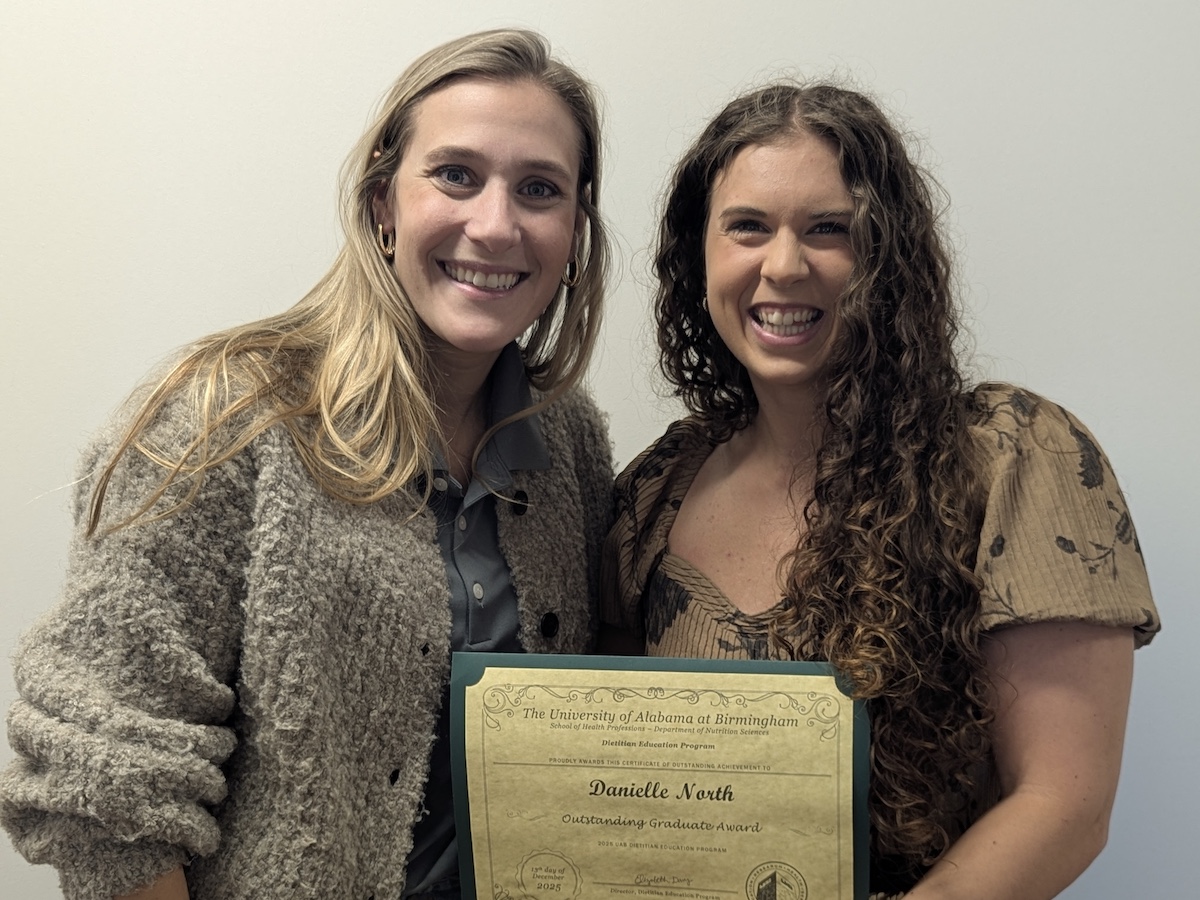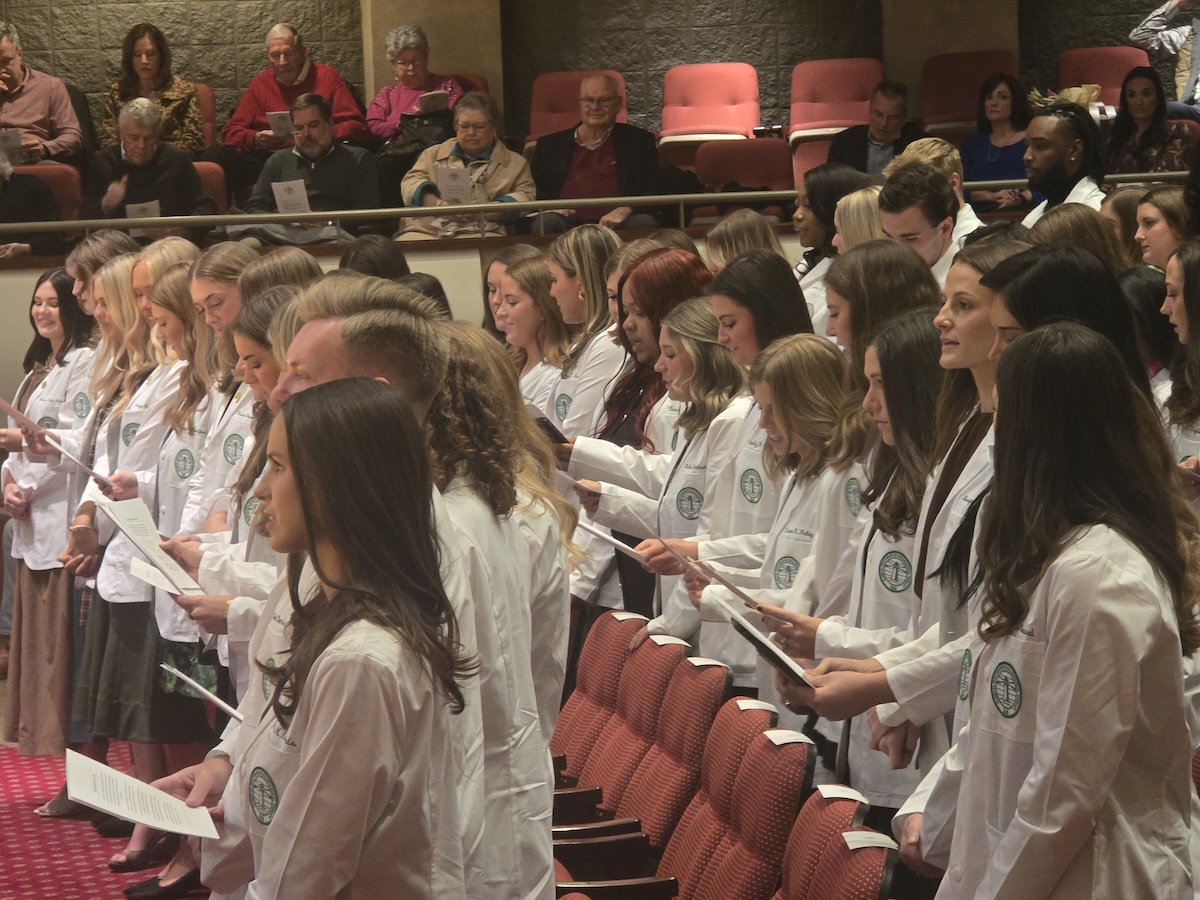 Mohanraj Thirumalai, Ph.D.Mohanraj Thirumalai, Ph.D., assistant professor in the University of Alabama at Birmingham School of Health Professions’ Department of Health Services Administration, has been awarded a $1.5 million grant from the National Institute on Disability, Independent Living and Rehabilitation Research. The three-year grant is part of the Disability and Rehabilitation Research Projects funding program.
Mohanraj Thirumalai, Ph.D.Mohanraj Thirumalai, Ph.D., assistant professor in the University of Alabama at Birmingham School of Health Professions’ Department of Health Services Administration, has been awarded a $1.5 million grant from the National Institute on Disability, Independent Living and Rehabilitation Research. The three-year grant is part of the Disability and Rehabilitation Research Projects funding program.
His proposal, titled “AI4CHRON – An Accessible and Inclusive Artificial Intelligence Assisted Chronic Disease Self-Management Telehealth Platform,” is looking to create a scalable solution that can be used by any person anywhere in the United States.
Thirumalai was inspired by the recent trend in customer service of convergent or omni-channel communications, when the customer can reach out through a variety of platforms — phone, email, text, chat, etc. — and continuity is maintained. This is difficult for people with disabilities because, even if they share a disability, their individual symptoms or scenario may be different.
“We will be working to allow for people with disabilities to be able to choose the method, the frequency and the length of how they communicate, and to make this possible, there will be a layer of artificial intelligence-supported natural language processing layers,” Thirumalai said. “First it is artificial intelligence — a machine talking to you and taking you as far as it can. Then the machine transfers them to a person — we call this the human handover.”
The research subcontractor is the UAB/Lakeshore Research Collaborative where Thirumalai also serves as director of Information and Communication Technology. The human handover will connect the user with trained coaches at the Lakeshore Foundation via telehealth.
Typically research is conducted using randomized control trials — you create one solution that you assume is the best, you test it, and it either works or it does not work. In this project, Thirumalai’s team will use an engineering-inspired strategy called a multiphase optimization strategy. To do that, they will work on variations of one solution.
Some examples:
- Scheduling: Should there be a fixed amount of time and resources for the participant, or should they have total access as dictated by their needs?
- Gamification: Does awarding points or monetary rewards for participating in various activities affect outcomes?
- Combinations: What levels of human contact combinations and different technology combinations achieve the optimal solution for scalability?
“We can do the most complex solution that takes the most amount of time and the most amount of money, but the problem is you cannot scale that solution. Yes, it works; but then it is only available to a small number of people,” Thirumalai said. “If you really want to scale a solution and impact a lot of people, you want to have the optimal level of usability, time and cost, and that is our ultimate goal in this research.”
“We will leverage the multiphase optimization strategy that really focuses on resource management and continuous improvement principle,” said Tapan Mehta, Ph.D., director of Design Analytics Core, UAB Nutrition Obesity Research Center, and director of Research for the Department of Health Services Administration. “This will help us eventually in the development of an optimal and adaptive AI-assisted telehealth platform that is scalable, is sustainable and improves health services related to chronic disease management.”
Thirumalai points out that this is not only about a person’s disability. Their clients have chronic health conditions like diabetes, heart problems, hypertension, lung illnesses and socio-economic position.
Because of this, the research also involves lifestyle behavioral modification. To support these efforts, collaborators from three different UAB schools have joined Thirumalai and Mehta: Andrea Cherrington, M.D., associate professor and obesity researcher in the Division of Preventive Medicine; Cathy Roche, Ph.D., R.N., assistant professor in the School of Nursing; and Amanda Willig, Ph.D., R.D., associate professor in the Division of Infectious Medicine, whose research looks at nutrition and physical fitness to prevent and treat chronic disease.
“You can identify the most biologically effective diet or exercise program to treat chronic health conditions, but that program is essentially useless if it does not meet the client where they are in terms of current lifestyle and priorities,” Willig said. “Integration of the telehealth platform in a multiphase optimization strategy evaluation will allow us to develop behavioral health approaches that are more realistic and tailored to the individual’s goals and health needs.”
Work on the grant began Sept. 1, and will run through Aug. 31, 2023. If the work proves scalable, the program will be distributed nationally through the National Center on Health, Physical Activity and Disability. The NCHPAD has been helping people with disability and other chronic health conditions achieve health benefits through increased participation of all types of activities since 1999.

